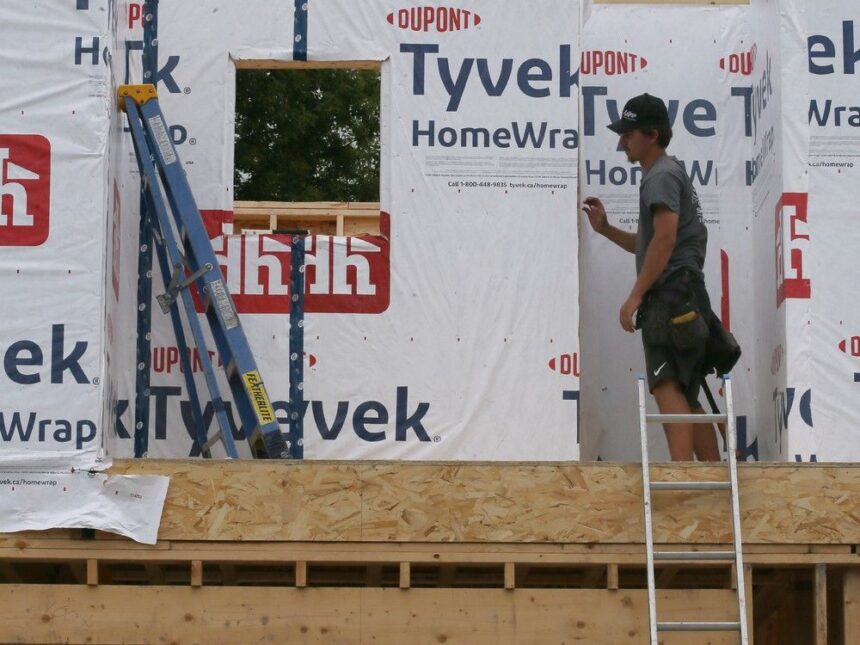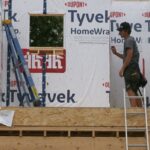In Toronto’s sprawling suburbs, where cranes once dotted the landscape with promise, construction sites now sit eerily quiet. Behind the stillness lies a perfect storm of economic pressures that threatens to derail Canada’s ambitious housing targets and push home ownership further beyond the reach of average Canadians.
New data from the Canadian Home Builders’ Association (CHBA) reveals that recently imposed tariffs on imported steel and aluminum construction materials have added approximately $6,300 to the cost of building an average single-family home. For a typical condominium unit, the additional burden amounts to roughly $2,500 – costs that inevitably pass directly to consumers in an already overheated market.
“These tariffs couldn’t have come at a worse time,” explains Kevin Lee, CEO of the CHBA. “We’re already grappling with persistent supply chain disruptions, labor shortages, and record-high interest rates. Adding significant material cost increases effectively kneecaps the industry’s ability to deliver affordable housing solutions.”
The federal government’s ambitious target of constructing 3.5 million new homes by 2031 now faces serious headwinds. Industry experts from CO24 Business have been tracking these developments closely, noting that nearly 87% of builders report significant project delays due to material cost increases, with 62% forced to cancel developments entirely.
The ripple effects extend far beyond construction sites. In major metropolitan areas like Vancouver and Toronto, where Canada News has documented housing crises for years, the rental market has tightened further. Average one-bedroom apartment rents increased 9.7% year-over-year in Toronto and 11.2% in Vancouver – pushing essential workers further from city centers.
“We’re seeing a troubling acceleration of urban inequality,” notes housing economist Diana Petramala at Ryerson University’s Centre for Urban Research. “When construction costs rise, developers naturally shift toward luxury builds with higher margins. Affordable and middle-market housing gets squeezed out precisely when we need it most.”
The CHBA survey found that 91% of builders have been forced to raise prices in response to tariff-induced cost increases, with the average price hike exceeding $32,000 per unit. For first-time homebuyers already struggling with mortgage qualification requirements, this represents yet another barrier to entry.
Political tensions surrounding the issue continue to mount. Conservative housing critic Scott Aitchison has criticized the Liberal government’s approach as “economically reckless,” arguing that protective tariffs undermine affordability goals. The government counters that the measures protect Canadian steel producers and jobs, though CO24 Politics analysis suggests the net economic impact remains disputed among policy experts.
Meanwhile, provincial efforts to streamline permitting processes and municipal zoning reforms face renewed scrutiny as cost pressures mount. British Columbia’s recent legislation to encourage higher-density housing in previously single-family zones represents one approach, though implementation timelines exceed immediate needs.
International comparisons prove equally troubling. While Canada struggles with housing supply, peer nations like Japan and Germany have implemented more effective policies balancing industry protection with housing affordability. Their approaches emphasize predictable regulatory frameworks and targeted incentives rather than broad import restrictions.
Industry leaders are calling for targeted relief measures, including tariff exemptions for construction materials used in affordable housing projects. “We need policy coherence,” argues Brendan Sommerville, president of a mid-sized Toronto development firm. “You can’t simultaneously demand more housing while making it prohibitively expensive to build.”
As Canada navigates these complex challenges, the fundamental question remains: can we balance legitimate trade protection with the urgent need for housing affordability? For millions of Canadians watching their dream of homeownership slip further away, the answer can’t come soon enough.






















